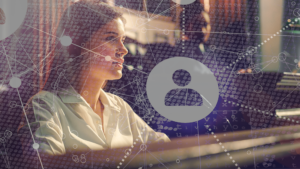Introduction to How Vocational Rehabilitation Expert Witnesses Support Legal Cases
Vocational rehabilitation expert witnesses play a vital role in many legal cases across the United States. Their specialized knowledge helps judges and juries understand employability, work capacity, and economic loss after an injury or disability. These professionals analyze an individual’s ability to return to work and determine realistic employment options. They also offer insight into how medical conditions or injuries affect vocational functioning.
This blog examines the role of vocational rehabilitation expert witnesses in legal cases. It details their qualifications, everyday responsibilities, key contributions, and the value they bring to attorneys and legal proceedings.
Understanding Vocational Rehabilitation Expert Witnesses
Definition and Scope of a Vocational Rehabilitation Expert Witness
A vocational rehabilitation expert witness is a trained professional specializing in disability, employment, and labor market analysis. They provide expert opinions in legal cases involving injuries, illnesses, or disabilities. Their insights help determine an individual’s capacity to return to work and earn income.
Common Legal Cases That Use Vocational Rehabilitation Expert Witnesses
Attorneys call on these experts in a variety of legal contexts where work ability is disputed. Their involvement is especially valuable in cases such as:
- Personal injury litigation
- Workers’ compensation claims
- Employment discrimination suits
- Divorce and spousal support cases
- Wrongful termination
- Social Security Disability hearings
In each setting, they offer objective analysis to clarify employment-related damages, making them essential contributors to fair and informed legal outcomes.
What a Vocational Rehabilitation Expert Witness Does in Legal Cases
Vocational rehabilitation expert witnesses perform a wide range of duties to support legal proceedings. Their work combines careful review, testing, analysis, and expert communication to assess how injury or disability affects an individual’s ability to work.
Reviewing Case Records and Background Information
The process begins with a detailed review of the individual’s background. Experts examine key documents, such as medical reports, employment history, educational background, and earnings statements. This information helps them evaluate the person’s functional capacity before and after the injury or disability.
Vocational Evaluation
Next, they conduct structured interviews and vocational assessments to measure the person’s skills, interests, and job potential. These evaluations may include aptitude testing, job skills analysis, and functional capacity evaluation. The goal is to identify realistic employment options that align with current abilities and limitations.
Labor Market Analysis
Experts then research the local and national job markets. They match the individual’s capabilities with available roles, considering both physical and cognitive restrictions.
Earning Capacity Estimation
Using the evaluation results and labor data, they estimate pre- and post-injury earning potential. When necessary, they work with economic experts to project long-term wage loss or diminished earning capacity.
Expert Reports and Testimony
Finally, vocational experts compile their findings into formal reports and testify in depositions, hearings, and trials. Their insights help attorneys, judges, and juries understand the vocational and financial impact of an injury or disability.
Qualifications of a Vocational Rehabilitation Expert Witness
Attorneys and courts rely on vocational rehabilitation expert witnesses to deliver credible, unbiased, and well-supported opinions. To meet these expectations, experts must possess a combination of advanced education, practical experience, professional certifications, and a strong understanding of legal standards.
Education and Training Required for Vocational Rehabilitation Expert Witnesses
A qualified vocational expert typically holds a master’s degree or higher in fields such as vocational rehabilitation, counseling, psychology, or other related health or social science disciplines. This academic foundation ensures the expert understands human development, disability issues, and the complex factors that influence employability.
Professional Certifications
Certification demonstrates that an expert follows recognized practices and ethical guidelines. Common credentials include:
- Certified Rehabilitation Counselor (CRC)
- Certified Vocational Evaluator (CVE)
- Certified Life Care Planner (CLCP)
- ABVE Fellow or Diplomate status from the American Board of Vocational Experts
These designations reinforce the expert’s commitment to maintaining current knowledge and delivering consistent, high-quality evaluations.
Experience and Knowledge
Beyond academic qualifications, vocational experts must have years of hands-on experience. Ideal candidates have backgrounds in vocational counseling, disability case management, job placement, and workforce rehabilitation. They also bring deep familiarity with labor market conditions, job requirements, occupational demands, and wage data. This real-world expertise allows them to assess a person’s work capacity with accuracy and confidence.
Understanding Legal Standards for Expert Witness Testimony
Equally important, vocational experts must understand the legal standards that govern expert testimony. In federal courts, this includes compliance with the Daubert standard. Their methodologies must be recognized, their analysis reliable, and their opinions well-documented and supported by evidence.
How Vocational Rehabilitation Expert Witnesses Support Personal Injury Cases
In personal injury litigation, vocational rehabilitation expert witnesses provide critical analysis that connects medical evidence with real-world employment outcomes. Their insight helps quantify damages and determine how an injury impacts a person’s future in the workforce. Attorneys rely on these experts to present clear, objective evaluations that support fair compensation.
Key responsibilities and contributions include:
- Bridging Medical and Economic Evidence: Vocational experts interpret the medical effects of an injury and explain how those limitations translate into workplace restrictions. They help the court understand how a person’s ability to work has changed due to their condition.
- Evaluating Earning Capacity: Experts assess the individual’s education, work history, job skills, and functional limitations. They identify potential employment options and determine whether the person can return to their previous job or must shift to new roles.
- Calculating Wage Loss: By comparing pre- and post-injury earning potential, vocational experts estimate the long-term financial impact of the injury. The expert also considers lost wages and diminished earning capacity over time.
- Delivering Testimony: Experts prepare detailed reports and provide testimony that translates technical data into understandable terms. Their clear explanations help jurors grasp how the injury affects future income and employment opportunities.
Together, these contributions strengthen the attorney’s case by grounding damages in objective, vocational evidence. Their work is especially valuable when injury-related limitations are complex or contested.
The Role of Vocational Rehabilitation Experts in Catastrophic Injury and Wrongful Death Litigation
Vocational rehabilitation expert witnesses are essential in high-stakes cases involving catastrophic injuries or wrongful death. Their evaluations help establish the economic consequences of life-altering injuries or loss of life, providing a foundation for accurate and fair compensation.
Key areas of support include:
- Catastrophic Injuries: Experts determine whether the injured person can return to any form of employment. They assess the need for retraining, job modifications, or supported work. Then, they calculate the lifetime vocational loss by comparing the pre-injury work capacity and income potential with the post-injury work capacity and income potential.
- Wrongful Death: In fatal cases, vocational experts analyze the deceased’s likely career path, including expected promotions, work-life expectancy, and earning growth. These projections support damage claims for lost income, pensions, and benefits that surviving family members would have received.
Vocational experts often collaborate with economists to anchor their projections in real-world employment data. Their input ensures that loss estimates reflect both the individual’s capabilities and the economic realities of the labor market.
Key Benefits of Hiring a Vocational Rehabilitation Expert Witness
Retaining a vocational rehabilitation expert witness can significantly strengthen a legal case—especially when employability, earning capacity, or vocational damages are in question. These professionals offer more than just opinions; they bring evidence-based clarity to some of the most complex issues attorneys face in litigation.
Key benefits include:
- Objective Insight: Vocational experts offer unbiased and neutral evaluations. This objectivity builds trust and ensures that their opinions hold weight in court.
- Comprehensive Evaluation: These experts examine every aspect of a person’s vocational profile—including education, work history, job skills, physical or cognitive limitations, and labor market access.
- Persuasive Testimony: In the courtroom, vocational experts explain their findings clearly and effectively.
- Damage Quantification: Accurate wage loss projections are critical in cases involving future earning capacity. Vocational experts quantify this loss using real labor data and case-specific analysis, supporting fair settlements and verdicts.
- Strategic Support: Attorneys benefit from expert input long before trial. These experts help shape discovery, develop cross-examination strategies, and identify strengths and weaknesses in both sides of a case.
- Broad Legal Utility: Vocational experts are helpful in many areas of law, including personal injury, workers’ compensation, employment disputes, and family law cases.
In every case type, a vocational expert brings clarity, credibility, and measurable insights to questions of work capacity and economic loss. Their expertise not only supports effective legal strategy—it often defines it.
When Attorneys Should Consider Hiring a Vocational Expert Witness
Some legal cases raise complex questions about a person’s ability to work, earn income, or re-enter the job market after an injury or career disruption. In these situations, a vocational rehabilitation expert witness can provide clarity backed by evidence and professional insight.
Signs a Vocational Expert Witness May Be Needed
- Disputed work ability
- Projected lost income
- High-value claims
- Opposition using an expert
- Complex job situations
Key Case Types
- Personal injury lawsuits
- Disability cases
- Wrongful termination
- Divorce matters involving spousal support
These professionals offer valuable input when employment-related damages are a central aspect of a case. Their neutral assessments can help clarify disputed claims, provide structure to complex earnings questions, and support well-informed decision-making at every stage of litigation.
Summary: How Vocational Rehabilitation Expert Witnesses Strengthen Legal Cases
Vocational rehabilitation expert witnesses offer invaluable support in legal cases involving disability, injury, or employment loss. Their insights on employability, economic impact, and labor market realities help ensure just outcomes. Attorneys who leverage these experts gain an edge in presenting clear, credible, and data-driven evidence. In cases where future work ability is in doubt, vocational expert testimony can make the difference between speculation and substantiation.
Read more:
- Empire Justice Center | THE NUTS & BOLTS OF
VOCATIONAL CROSSEXAM - Attorney at Law Magazine | How Vocational Experts Determine the Value of Household Services

Are you an Attorney?
We’re here to help! Let us connect you with qualified professionals who are available for depositions and testimonies. Our database includes over 15,000 experts with a wide range of specialties. Reach out today to fast-track your search for an expert witness.
Frequently Asked Questions
1. What is a vocational rehabilitation expert witness?
A vocational rehabilitation expert witness is a trained professional who assesses an individual’s ability to work after an injury, illness, or disability. They provide expert opinions in legal cases involving employability and earning capacity.
2. What does a vocational rehabilitation expert witness do?
They review records, conduct evaluations, analyze labor markets, and testify about how injuries or disabilities impact a person’s ability to work and earn income.
3. What are the qualifications of a good vocational rehabilitation expert witness?
A qualified expert typically holds an advanced degree, relevant certifications (such as CRC or ABVE), and extensive experience in vocational assessment and labor market analysis.
4. Do I need a vocational rehabilitation expert witness?
A vocational expert may be helpful if a legal case involves disputed work ability, projected wage loss, or questions about employability following an injury or disability.







